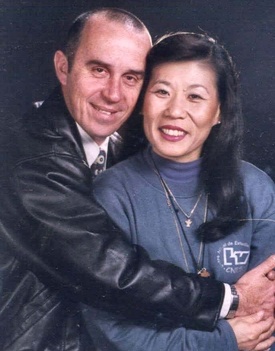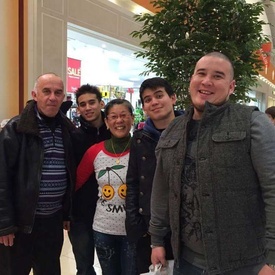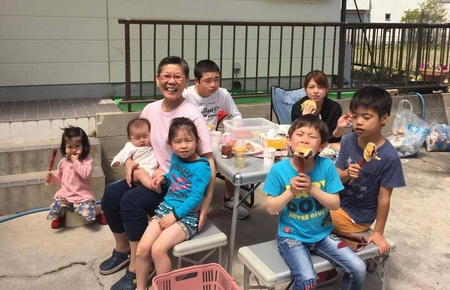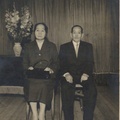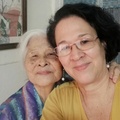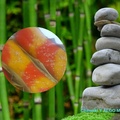The year was 1989, years in which we began to feel the dekasegui phenomenon, there was no cable, there was no internet, my parents liked Enka music, my older sister too, the link we had with Japan was the videos. on VHS that they lent you, bought or could get somehow. In them you saw the Kohaku Uta Gassen , an end-of-year program, where men competed against women in singing, where I could see the singers of the genre that my parents liked, mixed with other more modern ones, as well as other programs. .
My older sister, when I went to Japan to work, sent the videos that I could record to my parents, they received them with great joy, while here in Lima shows were made emulating these programs. I remember that I went reluctantly, forced because I had to take to my parents, on one occasion, in a contest called Voces Nuevas , there was a girl named Charo Unten, who won that contest. She was a girl who caught my attention because of her smile, as well as her voice. After that, she became a frequent participant in these neighborhood musicals. She participated in the La Punta Festival in 1992 to win it. until he presented himself professionally the following year, at the Barranco Station.
In 1997 she began working as a music teacher at the Juan XXIII school. Surely, like all Nikkei families, they were affected by the economic crisis and terrorism, until they could no longer resist, and they went looking for other horizons to Japan in 2003; Two years before, her husband Ricardo and her eldest son, Ricky, stepped forward to make the entire family's journey easier.
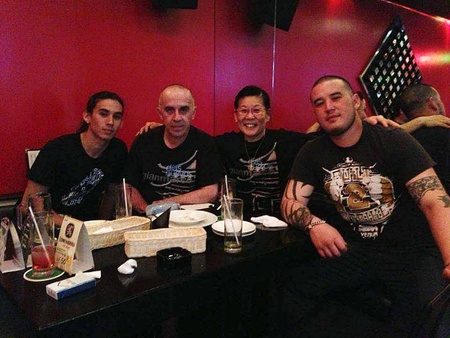
I don't know Charito personally, as I affectionately call him (he endears himself to me), Facebook has made us connect with people that, under normal circumstances, we would not have met. Everyone knows her, a recognized singer in the Peruvian Nikkei colony, now in Japan, working like everyone else, but without leaving aside her presentations on special days, always current; I had seen that we had friends in common and when they shared something about her, I always read it, sometimes I commented, I timidly decided to ask for friendship, at the touch she accepted me, she is just like that, simple, loving, good vibes.
Every night he ends his day writing on his wall: “TODAY I HAD A BEAUTIFUL DAY”, between emoticons of hearts, faces, telling us a summary of everything that happened to him, most of the time very good things, sometimes not so good, but his way of seeing life is always positive. He always does it at night (Japan), here it is in the morning (Peru), because of the time difference. Between dreams, trying to open my eyes, I read what he writes every day, it is very good to always read something so positive when you wake up, I have made it almost a therapy for me, I want to feel infected by that philosophy of life, there is nothing that can Take away the good mood you have, even about negative things, you always see the “glass half full” in all situations.
Whether it's cold, hot, rainy, spring, summer, fall, winter, something good comes out of everything. A person who does not get sad or in a bad mood when it starts to rain, rather likes the rain, enjoys walking in his rain boots, like a girl, playing with it, enjoys the entire landscape, no matter where he goes by car, train or walking. Even when she is standing on the train, she sees it as good, putting tension on her muscles, to strengthen them. If she is sitting, she takes the opportunity to write about her day. It welcomes each time the month begins and says goodbye to the one who leaves, with the feeling that it was always good, with the assurance that the next one will be better.
Always making fun of herself, with a lot of humor, I remember one time she said that she felt that someone saw her and it was an old woman, she realized that it was her reflection in the train window, another time she said "the same old lady from the other day told me." I was looking again, but I recognized her immediately, how beautiful.” When she gets up early in the morning, she does her stretches, a lot of rabbits sound, she says “I'm crunchy.”
He celebrates the first day of the week as if it were the last, always wanting to work, happy about it, because he likes what he does. Always with her projects about singing, her presentations, her passion, she sings whenever she can, when she is driving in her car or when her husband is driving, seeing the fields of rice, barley along the way; clear landscapes even if it is cloudy. She imagines the figures in the sky, in the clouds, a nature lover.
She discovered her other vocation in Japan, that of caring for the elderly. She has the sensitivity to do so, she understands the problems, she is saddened by the elderly abandoned by their family. Japan may be very modern, but she lacks a lot to understand them and love them. until the end of his days. It's not just leaving them in a nursing home and having them take care of them. His other passion is children. He recently had to change jobs due to not very pleasant circumstances, but God knows why he does things. Without spending much time, he managed to get another job where the children are his daily life, he plays, laughs, teaches them to play instruments, he feels that it is not a job, that it is fun.
She has so many friends that everyone knows her because she is always like that, simple, she meets up with friends when she can, most of whom she has known for years, whether at home or in other places; He has a very close-knit family, worried about each other, it seems like they have a system or a network that is always connected. When she had her previous job, she always had what she called her “Wednesdays”, it was when she went to visit her mother, every Wednesday, I really like her that she considers family so important, they are always connected, worried about her Mommy. Most importantly, she has the support of her husband Ricardo, in everything, they are a very beautiful couple, now they live alone, but always in communication with all their children, grandchildren, family and friends.
Charito wrote a song, '' Aseranaide, awatenaide, akiramenaide '' ("Don't rush, don't be scared, don't give up") that represents the feeling of her experiences in Japan, being the only foreigner in her workplace made may be the subject of discrimination by many, but don't think that this song talks about them or complains, rather it talks about having a positive attitude about everything, never complaining—perseverance, patience, not giving up, always forward. Our renowned Nikkei journalist Alfredo Kato published a publication for Perú Shimpo , where he did a very good interview with Charo.
At the moment Charo is dedicated to her work, but in her free time she is rehearsing to give a presentation on September 16, 2018, at Togo Town Hall, in Japan. Surely many will accompany her because they will spend a very pleasant moment with her, with all types of music, of all genres, in Spanish, Japanese and, above all, Peruvian music.
© 2018 Roberto Oshiro Teruya


